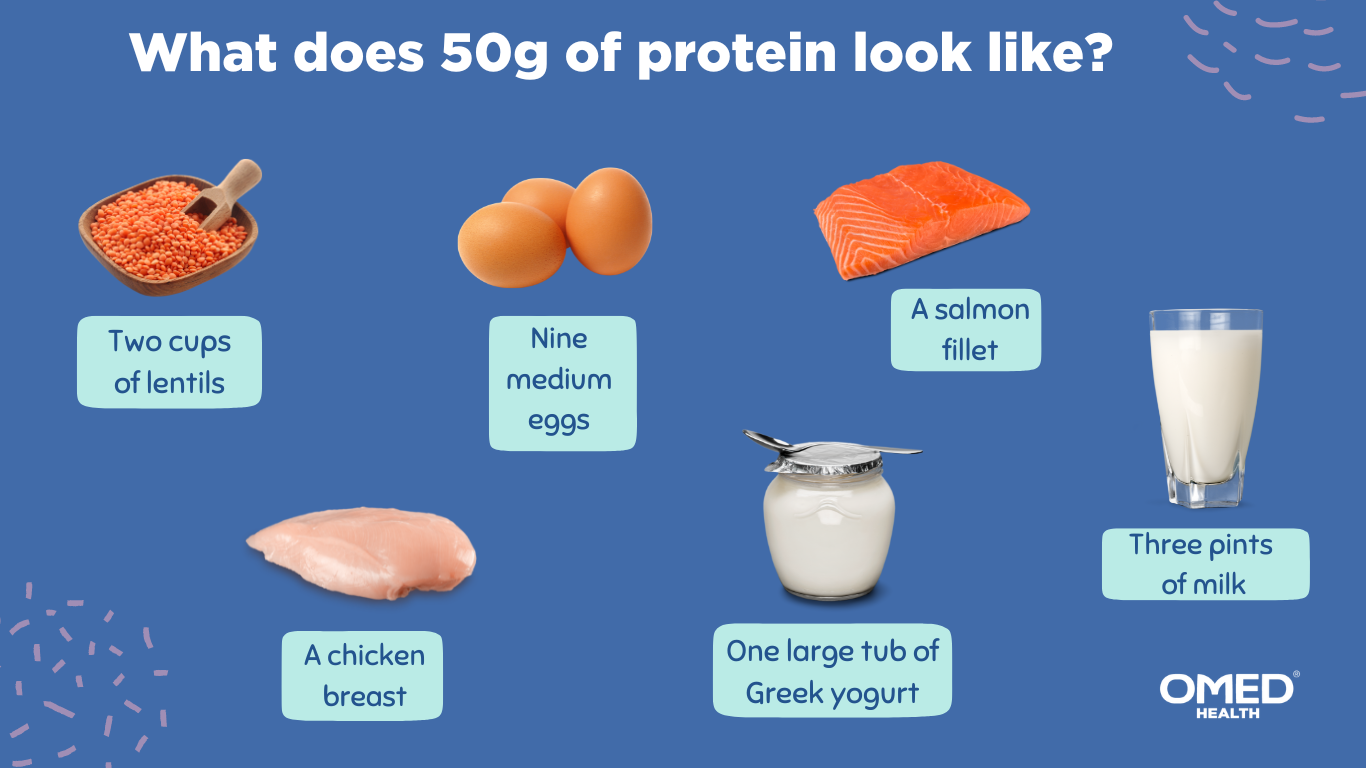OMED Health Gut Microbiome expert Dr Nabeetha Nagalingam quoted in Yahoo! Life
In a recent article, Yahoo! Life explains how ‘protein pacing’ combined with intermittent fasting could be the key to healthy weight loss. This insight is based on a study published in the world-renowned scientific journal Nature Communications by researchers from Arizona State University and the University of Pittsburgh.
What did the study find?
41 overweight and obese individuals were given a calorie-restricted diet for eight weeks. However, one group participated in intermittent fasting, meaning that they could only eat within specific windows of time, and followed a protein paced schedule. This involved eating four meals per day, every four hours and consuming 25-50 grams of protein per meal. After eight weeks, this group showed increased diversity of their gut microbiome and reduced gut symptoms. They also lost more weight, crucially losing more body fat compared to the group that simply ate fewer calories.
However, Dr Nagalingam cautions that we must consider that “there are some limitations – study size, duration, participants all being overweight or obese etc – that would warrant follow-up studies to better understand these interactions. Nevertheless, this study represents a step forward in better understanding gut health and the role of the gut microbiome in facilitating weight loss in overweight/obese individuals.”
How do intermittent fasting and protein pacing affect gut health?
Intermittent fasting involves spacing out meals and not eating anything in between those times. This could include eating only one meal per day or only eating within a set period of eight hours, for instance.
A review (1) of various studies found that intermittent fasting influences the gut microbiome, often causing an increase in bacterial diversity. Yet the reason behind these changes could lie in dietary changes that often accompany studies as they sometimes attempt to control the diet. In less strict dietary studies, participants may eat more healthily simply because they are being watched and monitored. In the nature paper mentioned previously, participants were eating high amounts of protein each meal, which may be uncharacteristic of their usual habits. By introducing new sources of protein, this may give different microbial populations the opportunity to grow and proliferate, especially since proteins can be complex and take longer than other nutrients to digest.
Protein is an essential macronutrient made up of smaller building blocks called amino acids. These help us build muscle and repair our body. Protein also helps us feel full and satiated after eating. Yet different foods contain different combinations of amino acids. Plant sources of protein are made up differently to animal sources and aren’t as readily absorbed by the body compared to animal sources. However, animal products are often higher in saturated fat. These fats could contribute to weight gain or heart health issues in some people, especially when eaten in excess. Learn more about the intricacies of protein sources in our iron and gut health blog.

Dietary personalization is important because the amount of protein each of us requires varies due to our weight and lifestyle. For example, for those of us regularly doing endurance type exercise may require more. The average person requires 0.75g of protein per kilo of body weight per day, for the average woman, this is 45g, or 55g for men. But what happens to our gut health if we consume too much or too little protein?
There have been reported links of high levels of protein intake and digestive symptoms, such as bloating and constipation, as well as inflammatory bowel disease (2). Protein rich foods tend to be low in fiber – which could explain the increased risk of constipation. If you are consuming too little protein, on the other hand, the bacteria within the gut could be starved of a food source and mean you are more likely to encounter gut health troubles.
The complexity involved in diet, lifestyle and gut health isn’t easy to navigate which is why it is always important to consult a health professional before making drastic changes to your diet. This is especially important in terms of fasting as there may be health risks if you have any underlying conditions or other risk factors such as being underweight or diabetic. To find out more about the study mentioned above, read Yahoo! Life’s article.
References:
- Paukkonen I, Törrönen EN, Lok J, Schwab U, El-Nezami H. The impact of intermittent fasting on gut microbiota: a systematic review of human studies. Front Nutr. 2024 Feb 12;11:1342787. doi: 10.3389/fnut.2024.1342787
- Yan J, Wang L, Gu Y, Hou H, Liu T, Ding Y, et al. Dietary Patterns and Gut Microbiota Changes in Inflammatory Bowel Disease: Current Insights and Future Challenges. Nutrients. 2022 Sep 27;14(19):4003. doi: 10.3390/nu14194003



